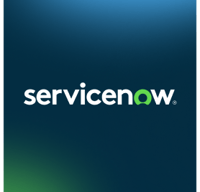What will I be doing?
- Lead “secure-by-default” architecture across AWS
- Design hardened base images for containers, Kubernetes, and AMIs
- Codify infrastructure and controls with IaC (Terraform/Pulumi) and drift detection
- Operate Kubernetes runtime controls (admission, image policies, least-privilege)
- Codify infrastructure and controls with IaC (Terraform/Ansible) and drift detection
- SIEM/SOAR integrations (Splunk/Sumo/ELK) with high-signal detections
- Integrate code/pipeline/cloud/runtime signals into SIEM/SOAR with actionable context
- Hands-on WAF/edge experience (Cloudflare/Akamai/AWS WAF) within layered defenses
- Lead threat modeling and translate risks into actionable backlogs with owners and dates
- Proven supply-chain and CI/CD security (signing, pinning, renovate/dependabot policies)
- Mentor teams, document processes, and drive adoption
What skills do I need?
- Deep cloud-native IR experience (multi-account AWS, containers, Kubernetes)
- Strong software and automation skills in Python and Go or Rust
- Kubernetes security: admission controls, PSS, network policies, and eBPF/Falco
- Practical fluency in CIS, NIST 800-53/CSF, OWASP ASVS/Top 10, and PCI-DSS
- Influence, technical leadership, mentoring, and excellent documentation
- Ability to convert risks into metrics and outcomes for stakeholders
Will be considered an plus:
- Relevant certifications (CISSP, CCSP, CSSLP, OSCP/OSWE, GIAC, Security+)
- Prior DevOps/Platform/SRE experience operating at scale
- PCI-DSS exposure with automated evidence mapping
- Open-source contributions to hardening or security toolingUse of LLM/RAG/ML to enrich detections and runbooks
- Experience building internal security tools (hardening automation, dashboards, API integrations)
- Good knowledge of security architectures, both monoliths and microservices, including how they are developed and operate at scale
- Have had developed a personal or enterprise software/script with focus on security (Hardening automation, API integration for security dashboards, any other use case)
Top Skills

What We Do
dLocal started with one goal – to close the payments innovation gap between global enterprise companies, and customers in emerging economies. We have over 900 payment methods, in more than 40 countries.
With the ability to accept local payment methods and facilitate cross-border fund settlement worldwide, our merchants reach billions of underserved consumers in the high-growth markets of Africa, Asia, and Latin America. dLocal offers the ideal payment solutions for global commerce:
Payins: Accept local payment methods
Payouts: Compliantly send funds cross-border
Defense Suite: Manage fraud effectively
dLocal for Platforms: Unify your platform’s payment solution
Local Issuing: Localize payments for your gig-economy workers, suppliers, and partners









